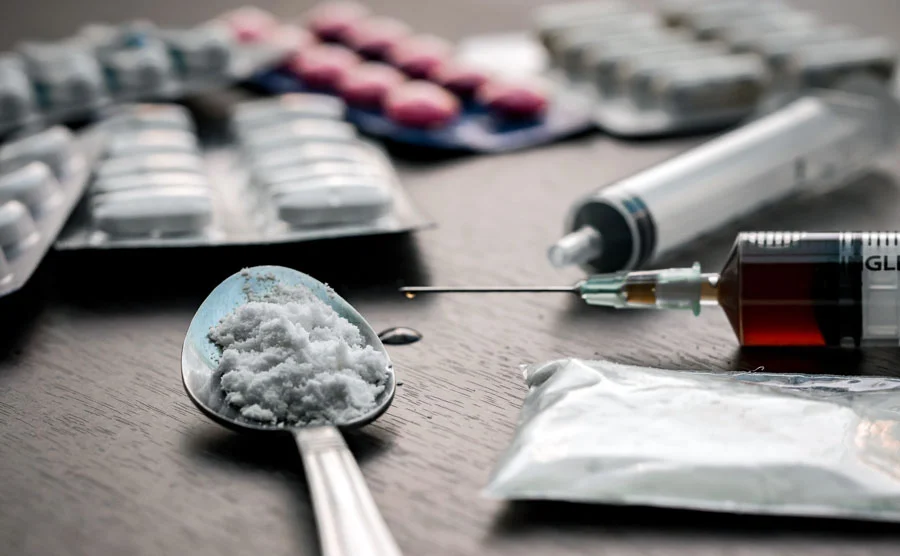Transitioning into college is a significant life milestone. A student’s life in college or university helps shape the person they become in the future. Going to college usually means separation from home and independence. But living in a new social environment can challenge a person’s values and beliefs.
University and college students in the U.S. face immense pressure to succeed and build a career. Most students get concerned about their academics and experience the stress of meeting new people and trying new things. Striking a balance between all the new events can be difficult, and some students turn to drinking or drug use as a coping mechanism.
Keep reading to find about the reasons why students turn to unhealthy drinking and drug use, and the most effective ways of getting help!
Get Help with Drinking and Drugs on Campus
According to the Substance Abuse and Mental Health Services Administration (SAMHSA), over a third of all American full-time college students between 18 and 22 binge drink regularly. The unique circumstances of college students make it necessary for customized addiction treatment programs tailored to meet their needs.
Substance use is among the most severe public health issues for the young American population, causing adverse health and socio-economic impacts for adolescents and their families.
Read on for more info about rehab for college students, and to get help if you are struggling while in college, or have a loved one that might be!
Drug and Alcohol Abuse in College Students
Although some college students abstain from use, most are of legal drinking age and have more independence on campus. This increases the need to set personal goals and boundaries. You might want to unwind from the school week with a pint with your pals to help you relax in social situations. But for many students, the burden of expectations from their families, educators, peers, society, and even themselves only grows heavier during their time at university.
Over 6 million young adults have substance use disorders (SUD). Under competing pressures, college students must learn to live a new lifestyle around factors that can predispose them to college drug abuse. Alcoholic beverages are readily available on college campuses, and students sometimes use drugs to relieve stress or enhance performance. Prolonged drug use may cause the students to develop substance use disorders or alcohol addiction.
One in every five American adults experiences mental health disorders annually. According to the National Alliance on Mental Illness (NAMI), 75% of mental health illnesses develop by 24 years. Students may experience symptoms of conditions like depression, bipolar disorder, or PTSD for the first time in college. Survivors of traumatic events like sexual assault are at a high risk of a mental illness diagnosis. Students with mental illness may turn to alcohol and drug use to cope with the symptoms.
Commonly Abused Drugs in College

The National Institute on Alcohol Abuse and Alcoholism (NIAAA) explains that drinking alcohol is a ritual that students consider an essential part of college or university life. Although alcohol is the most commonly abused drug by young adults, most students also use:
- Marijuana
- Ecstasy, LSD, and other psychedelics
- Study drugs and stimulants such as Adderall
- Cocaine
- Prescription painkillers
- Opioids
- Prescription or opiate painkiller abuse can cause injury, overdose, and death
Marijuana
Also called marijuana or weed, cannabis is among the most popular drugs on U.S. college campuses. Most marijuana users smoke it, while others incorporate the drug into edibles, like baked products and confectionery. Marijuana’s psychoactive and hallucinogenic effects vary by strain.
Nearly half the college student population reported using marijuana in 2018. Marijuana may not be as harmful as other illicit drugs, but occasional use might become problematic and aggravate a student’s anxiety. Addiction can develop with prolonged usage of this substance. If you suffer from a marijuana use disorder, call us at +1 877-651-3366 for confidential advice on getting help.
Cocaine
Despite cocaine’s popularity as a party drug on many universities and campuses, its stimulating effects are not worth the risks involved in using the drug. To feel more energized or productive, some young adults may opt to snort, inject, or inhale the white powdery substance. Others smoke it as crack cocaine.
Cocaine is lethal on its own, but when combined with other drugs commonly found on college campuses, such as Adderall or marijuana, it becomes exceedingly dangerous. Using cocaine has severe effects on mental and physical health. Given these potential long-term effects, helping someone addicted to cocaine could save their life.
“Study Drugs” and Prescription Stimulants
College students often use prescription stimulants like amphetamines to improve focus. Doctors prescribe drugs like Adderall and Ritalin to treat hyperactive issues, major depressive episodes, and irregular sleeping patterns. Some students use these drugs without a prescription as study aids, even though doing so is illegal and dangerous.
College students widely use stimulant tablets because of their ability to increase wakefulness and attentiveness momentarily. Examples of other study drugs include Modafinil and Concerta. Stimulant use disorders that involve study drugs require professional addiction treatment. Call Best Rehabs In Arizona for more information on study drug misuse.
Benzodiazepines
Also known as “benzos,” benzodiazepines are prescription drugs commonly used to treat anxiety, panic disorders, and seizures. Addiction professionals also prescribe these drugs to relax muscles and promote sleep. They are among the most often prescribed medications in the United States, and college students frequently abuse them for their sedative properties. Examples of benzodiazepines are:
- Xanax
- Valium
- Ativan
- Klonopin
Benzodiazepines like Xanax are highly addictive and have some of the most dangerous and life-threatening withdrawal symptoms of any form of drug.
The Effects of Drug Abuse on College Students
Substance misuse can have severe implications for college students that extend beyond their academic careers. The following are some of the short- and long-term consequences of drug and alcohol use disorder in college students:
- Poor academic performance: Substance misuse can result in reduced study time, missing class, and a lower GPA. Drug use can also lead to falling behind on assignments, dropping out, or being expelled.
- Risky behaviors: Drug abuse also leads to risky behaviors like driving under the influence, being involved in an alcohol-related sexual assault, getting into fights, indulging in dangerous sexual practices, and date rape.
- Health issues: Substance abuse can cause many physical health problems, including hangovers, sickness, and effects on your immune system.
- Social ramifications: Substance abuse can cause losing friends and vital relationships. You may become socially isolated if you spend a lot of time drinking or using drugs.
What are the Warning Signs of Substance Abuse?

Signs and symptoms of drug abuse among college students may include the following:
- Poor personal hygiene
- A decline in grades and absenteeism from school
- Needing drugs or alcohol to unwind or enjoy oneself
- Avoiding social interactions
- Mood changes
- People stop engaging in activities they used to enjoy
- Falsely denying the usage of drugs or alcohol
- Spending a lot of time using and recovering from the effects of drugs
- Physical and mental illness
- Withdrawal symptoms such as headaches and cravings
- Using drugs or alcohol while knowing the risks
- Legal issues like arrests
- Substance abuse in potentially dangerous settings like while driving
- Engaging in potentially harmful activities while under the influence of alcohol or drugs
Talking about a drug abuse problem might be a difficult conversation to have with someone who doesn’t believe they do. This conversation is more beneficial in the presence of someone trustworthy, like a professor or counselor.
When talking to a friend or loved one, let them know you’re worried about their health, happiness, and academic progress. If they are unwilling to listen, don’t criticize or blame them; instead, back off and try again later.
It is best to keep the conversation specific and inform them of scenarios you deem detrimental to their health. You don’t have to say everything all at once, but you might want to offer them a list of valuable resources and then follow up with them periodically.
Rehab treatment can help prevent the adverse effects of substance use on your health, academic career, and overall well-being, and there are various ways to get help. These include consulting with the campus health center, speaking with a counselor at your campus counseling center, or checking into a hospital or rehab center.
Treating Addiction in College Students
Some young adults in higher education refuse treatment for substance abuse because they don’t believe they have a problem. Students often avoid discussing therapy because of the stigma associated with drug abuse.
Accepting to get addiction treatment shows that you care about your health and your future. According to research, the sooner someone seeks addiction treatment, the more likely they will recover fully. Most rehabilitation centers cater to the needs of students without interfering with their studies.
Detoxification
Detoxification is often the first step in the rehabilitation process after assessment. During detox, substances like alcohol and narcotics are eliminated from the body. In this period, many addicts suffer from unpleasant withdrawal symptoms. Many of these symptoms are avoidable through medical detox.
Since quitting cold turkey can be fatal, medically supervised detox is essential when detoxing from benzodiazepines or alcohol. The average withdrawal periods for various drugs include:
- Cannabis – 2 weeks or more
- Alcohol – 5 to 7 days
- Tobacco – 2 days to 2 weeks
- Cocaine – 2 to3 days
- Opioids – 1 to 4 weeks
- Benzos – 10 to 14 days
Detox from opioid use disorders varies widely depending on the length of use and method of delivery. Opioid detox patients experience unpleasant withdrawal symptoms such as anxiety, depression, and insomnia. But they lose tolerance to opioids within days of abstinence.
Overdosing is a potential risk during relapse, which is, unfortunately, rather often. Relapse is avoidable with the help of medication in a Medication Assisted Treatment (MAT) program. Those with severe opioid addiction may benefit from starting on MAT for an extended time before attempting to wean themselves off the drugs.
Some recovering addicts think that withdrawal is the most challenging aspect of the process, while others say overcoming cravings after detox is the most difficult.
Behavioral Treatment
Mental health therapy and counseling help treat psychological and behavioral challenges that may have contributed to addiction. Counselors can assist college students in learning how to cope with drug urges and the challenges that might lead to drug usage.

Many college students have a co-occurring disorder that has led to drug use. Treating underlying mental health issues is critical to a successful addiction recovery process.
Common co-occurring disorders that students confront include:
- Depressive disorders.
- Eating disorders.
- Anxiety.
- Bipolar disorder.
Most higher learning institutions have on-campus mental health counselors. These counselors assist pupils in coping while keeping confidentiality. At Best Rehabs In Arizona, our comprehensive dual diagnosis treatment programs handle co-occurring mental health problems.
Outpatient Rehab vs. Inpatient Rehab
College students who are addicted to drugs usually require the assistance of a drug rehab facility to recover. Many inpatient and outpatient addiction treatment centers can help college students achieve sobriety without interfering with their studies.
Inpatient treatment centers provide a distraction-free environment away from campus temptations. College students in rehabilitation improve their grades and overall health. Many inpatient rehab facilities also cater to college students by being close enough to campus for residents to attend class during the day.
For a college student with milder addiction, outpatient rehab is a suitable treatment option. These outpatient centers offer withdrawal medication and counseling while not interfering with the student’s daily routine. Mental health counselors and support groups can help break down addictions psychologically.
How Long Does Rehab Take?
The length and intensity of rehabilitation can change depending on whether you choose inpatient or outpatient care. If you are worried about attending rehab for college students because you don’t want your grades to suffer or you don’t want to fall behind in your education program, consider what will happen if you don’t get help.
If you have to leave school for substance abuse treatment, various mental health resources can help you during and after the process. They include counseling programs, medical leaves of absence, or transition plans that involve modified programs of study. It takes courage to get help for a substance use disorder before your life completely unravels, but it’s admirable that you’re ready to do so.
The average time spent in inpatient treatment is between three weeks and ninety days, while some programs may need a longer commitment. If you choose outpatient care, you may be able to keep up with your daytime classes while receiving therapy in the evenings. Look for a rehab center, such as our programs at Best Rehabs In Arizona, that will work with you to identify the best treatment alternatives for your specific situation.
Rehab can seem daunting or intimidating, but if you don’t want your family or friends to know, no one has to. Taking charge of your life can set you up for a more peaceful, prosperous, and successful tomorrow.
Maintaining Sobriety as an Undergraduate

The next step after finishing addiction treatment is to remain sober while pursuing higher education. Some college rehab programs include sobriety and behavioral contracts to encourage sobriety. The students have to agree to things like going to 12-step meetings, staying away from drugs and alcohol, not engaging in risky behavior, and keeping up with their schoolwork.
Some educational institutions even provide rehabilitation housing for students who are experiencing substance abuse issues. Students in recovery from addiction may benefit from additional peer support from campus-sponsored events.
After finishing a college student rehabilitation program, the next step is to receive aftercare support. This is of utmost importance for those in recovery while attending college. Most universities provide their students access to outpatient treatment and recovery support groups. Getting sober takes effort, but it’s feasible to maintain that effort for the rest of your life.
Get Help Now and Keep Pursuing Your Degree
Best Rehabs In Arizonas are addiction and dual diagnosis treatment centers that offer cutting-edge drug addiction treatment services. If you are battling substance use, connect with us for a solid foundation for starting the journey to recovery.
Reach out now to our Admissions team and discuss the process of Admission and how we can best help you to get sober and get to the podium to celebrate your graduation!






